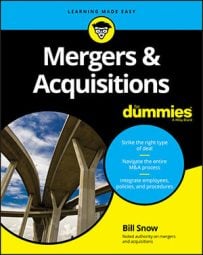Whether you’re a Buyer or Seller in the M&A process, you want to be able to read your opponent like a poker player. You want to know whether you’re in a strong position or a weak position. The stronger your position, the greater your negotiating leverage.
The four positions are as follows:
You have a strong position and your opponent knows it. This situation is where you may need the most skill. You have the upper hand, but if you push too hard, you lose the deal or get a less-than-ideal return.
In poker, if the table knows a person has a great hand, all the other players fold. Although he wins that game, the strong hand can win bigger by downplaying his hand and keeping the other players betting for longer.
You have a strong position and your opponent doesn’t know it. Being underestimated is a great thing! Hubris is the great enemy of getting deals done, so let your opponent crow and brag. Check your ego at the door and play the simpleton.
What people think of you during the process isn’t what’s important; how the deal ends is. And if it ends in your favor, what do you care about what other people think?
You have a weak position and your opponent knows it. This position is the danger zone. Your options are limited, and the other side is calling the shots. In this situation, your best bet is to move as quickly as you can and close the deal. Take your lumps, lick your wounds, and move on. The longer you linger, the worse your deal may get.
You have a weak position and your opponent doesn’t know it. Time to test your poker-playing skills and bluff. Never lie, but you have no reason to say (or show) you’re in a precarious position simply because you are. Finding that out is the other party’s job, and you don’t need to make the other side’s argument.
So short of having ESP, how can you ascertain the strength or weakness of the other party’s position? Here are a few pointers:
Ask questions and shut up. Let the other person talk. You may be amazed how much someone divulges when given a chance to talk.
Find out about the other party’s personal interests and likes. What seems like an innocent discussion about hobbies may reveal that the guy on the other side can’t wait to sell the business and pursue his real passion (be it sailing, travel, golf, volunteer work, or whatever).
Pay attention to details. For example, observe the faces of the employees when you visit the other party’s office. Are they generally upbeat and happy, or do you see a lot of long faces?
How clean and orderly is the business? Messes, clutter, water stains, burned-out bulbs, mold, and so on are often the signs of a business in decline. The employees (and ownership) no longer have the pride of a well-run business, and they simply may be ready to give up.
Keep an eye out for these tells (those subconscious habits or mannerisms that belie your true position) on your end as well. After all, you don’t want to unintentionally give away helpful information either.
Although you want to get as much negotiating power as possible, keep in mind that negotiating isn’t about taking advantage of other people. Deals only get done if Buyer and Seller find a mutually agreeable deal.

